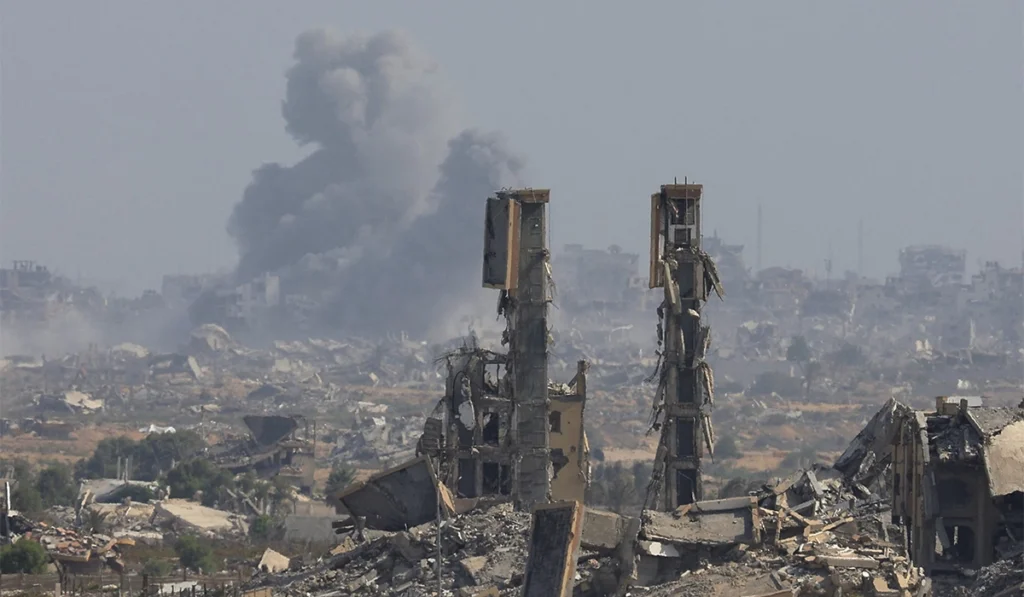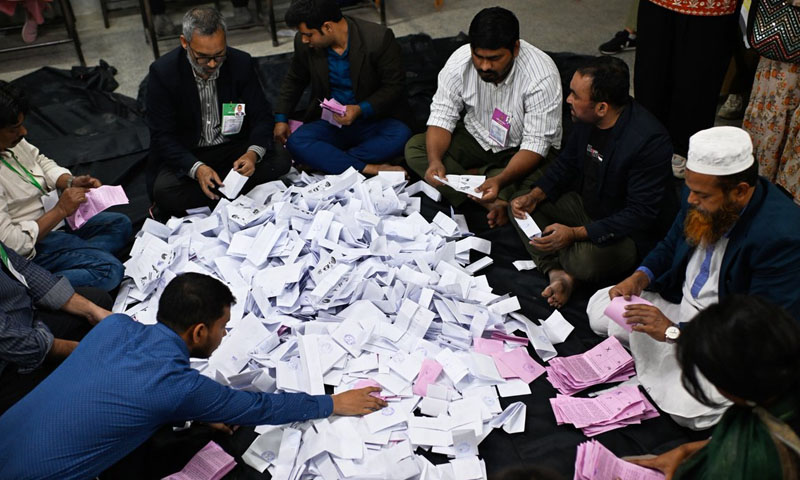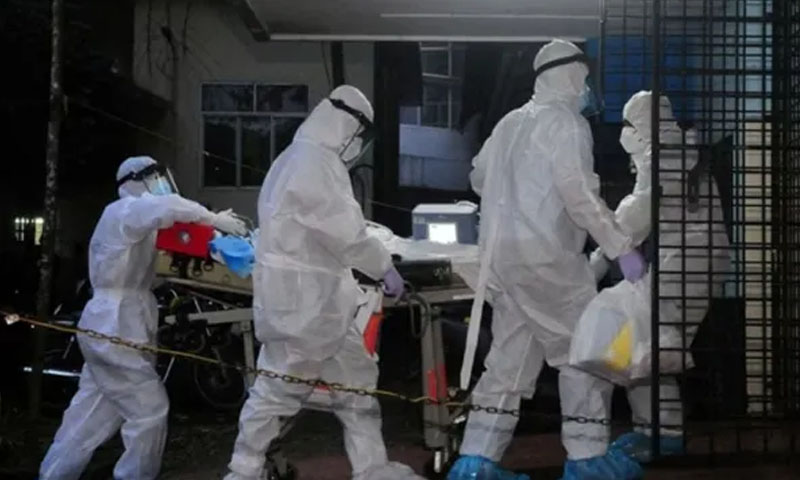- Web
- Yesterday
Gaza ceasefire signing expected at 0900 GMT
-

- Reuters
- Oct 09, 2025

JERUSALEM: The signing of an agreement marking the first phase of U.S. President Donald Trump’s Gaza peace plan is expected to take place at 12 p.m. Israel time (0900 GMT), a source familiar with the talks told Reuters on Thursday.
According to the source, the ceasefire will take effect in Gaza immediately after the deal is signed.
Israel and Hamas confirmed earlier that they had reached a long-anticipated ceasefire and hostage exchange agreement, the opening stage of Trump’s plan aimed at ending the devastating war in Gaza, which has killed more than 67,000 people and redrawn the region’s political landscape.
The agreement, brokered through indirect negotiations in Egypt, comes just one day after the second anniversary of Hamas’s surprise cross-border assault on October 7, 2023. The deal represents the first tangible progress under Trump’s proposed 20-point plan to stabilise the region and end the fighting.
Also read: Two-years of Gaza war today: what has Israel ‘achieved’?
If fully implemented, the accord could mark the most significant step yet toward ending a conflict that has not only devastated Gaza but expanded into a broader regional crisis, drawing in countries such as Iran, Yemen, and Lebanon, and increasing Israel’s global isolation.
Trump, announcing the deal on his Truth Social platform late Wednesday, said, “I am very proud to announce that Israel and Hamas have both signed off on the first phase of our Peace Plan. This means that ALL of the Hostages will be released very soon, and Israel will withdraw their Troops to an agreed upon line as the first steps toward a Strong, Durable, and Everlasting Peace.”

While hailed as a diplomatic milestone, the agreement remains light on specific timelines and leaves key issues unresolved, raising concerns it could unravel like previous ceasefire attempts.
HOSTAGES TO BE RELEASED WITHIN DAYS
According to a Hamas source, surviving hostages are expected to be released within 72 hours of the Israeli government’s formal approval of the deal. Around 20 of the 48 remaining hostages are believed to be alive. The recovery of bodies of deceased hostages, estimated at 28, may take longer due to the destruction across Gaza.
Celebrations erupted in both Gaza and Israel following the announcement. In Tel Aviv’s “Hostages Square,” Israeli families gathered in emotional scenes.
Israeli Prime Minister Benjamin Netanyahu praised the agreement, calling it a “national and moral victory” and a “diplomatic success.” He said his cabinet would convene on Thursday to finalise approval of the plan’s first phase.
DEAL INCLUDES ISRAELI WITHDRAWAL AND PRISONER EXCHANGE
Hamas confirmed the terms include an Israeli troop withdrawal from Gaza and an exchange involving Palestinian prisoners held in Israeli jails. “Our sacrifices have not been in vain,” the group said in a statement. “We remain committed to our people’s right to freedom, independence, and self-determination.”
Despite the optimism, Israel’s military warned that parts of Gaza remain dangerous and inaccessible. “Combat operations have not ceased entirely. Certain zones, particularly around Gaza City, are still unsafe,” a military spokesperson said Thursday.
UNANSWERED QUESTIONS CLOUD POST-WAR FUTURE
The broader vision under Trump’s peace plan involves a multinational body, reportedly including former UK prime minister Tony Blair, to oversee post-war governance in Gaza. However, it remains unclear who will ultimately administer the enclave, as Hamas, Israel, and various Arab nations remain sharply divided on the matter.
Arab states backing the plan insist it must pave the way for an independent Palestinian state, a demand Netanyahu has repeatedly rejected. Hamas, meanwhile, has ruled out foreign oversight of Gaza, saying it would only cede control to a Palestinian-led technocratic administration under the Palestinian Authority and supported by Arab and Muslim countries.
The issue of disarmament also remains unresolved. Hamas continues to reject calls to give up its weapons while Israeli forces remain in Palestinian territories.
MIXED INTERNATIONAL RESPONSE
The United Nations welcomed the agreement, with Secretary-General António Guterres urging all parties to uphold the terms and allow unrestricted humanitarian access to Gaza.
However, global scrutiny of Israel’s actions remains intense. A growing chorus of human rights organisations and a UN inquiry have accused Israel of committing acts amounting to genocide, a charge Israel firmly denies.
WHAT’S NEXT?
The agreement’s next phase hinges on successful implementation of the ceasefire and hostage release. Trump has indicated hostages could begin returning home as early as Monday, pending Israeli cabinet approval.
Also read: Why Palestine’s economy may not recover soon even if the war ends
In a joint phone call following the announcement, Trump and Netanyahu celebrated what the Israeli leader’s office described as a “historic achievement.” Netanyahu also invited Trump to address the Knesset, Israel’s parliament, in what would be a symbolic gesture of unity and gratitude.
Still, with many unresolved issues and past ceasefires having crumbled under pressure, observers caution that while this deal represents a major step forward, the road to lasting peace in Gaza remains long and uncertain.




